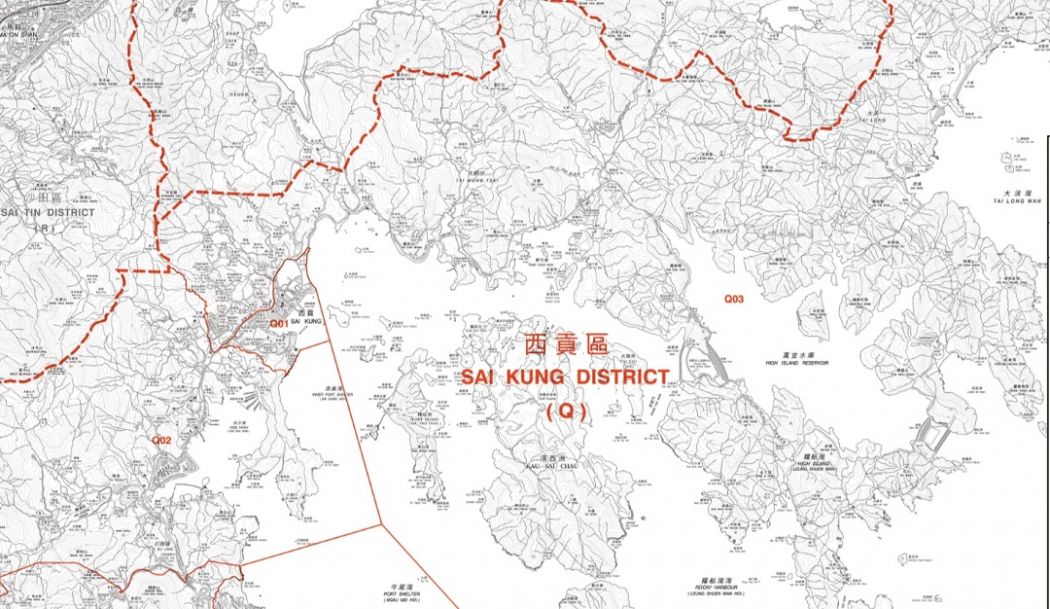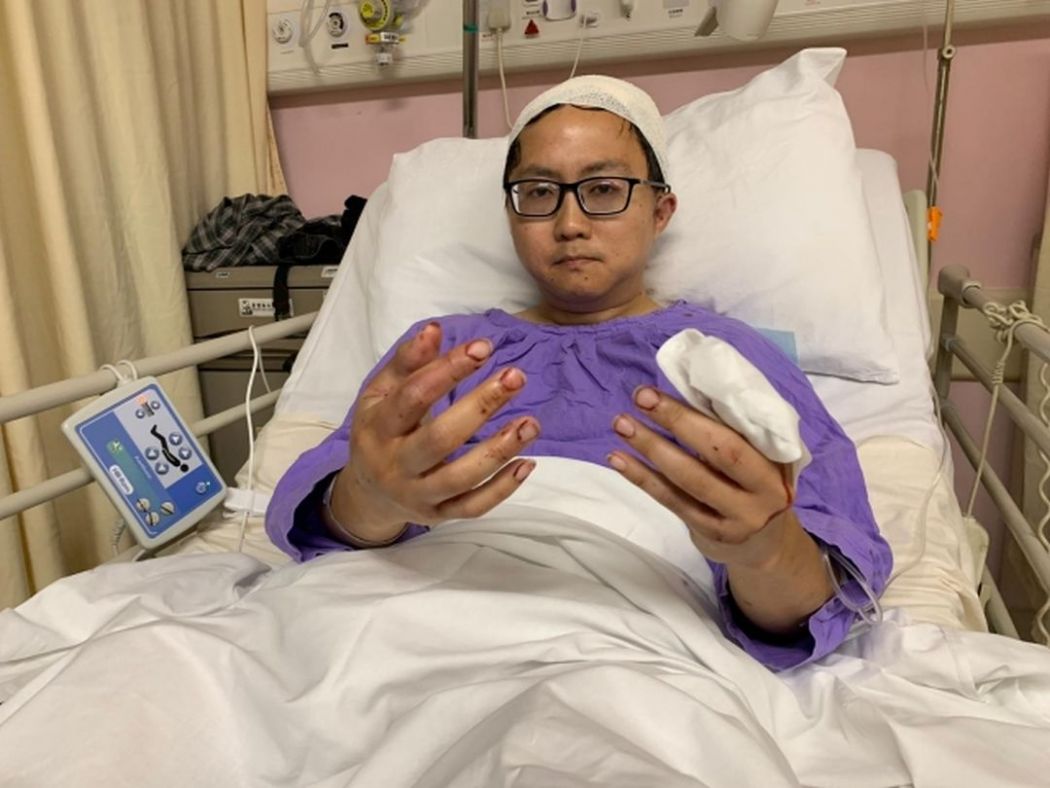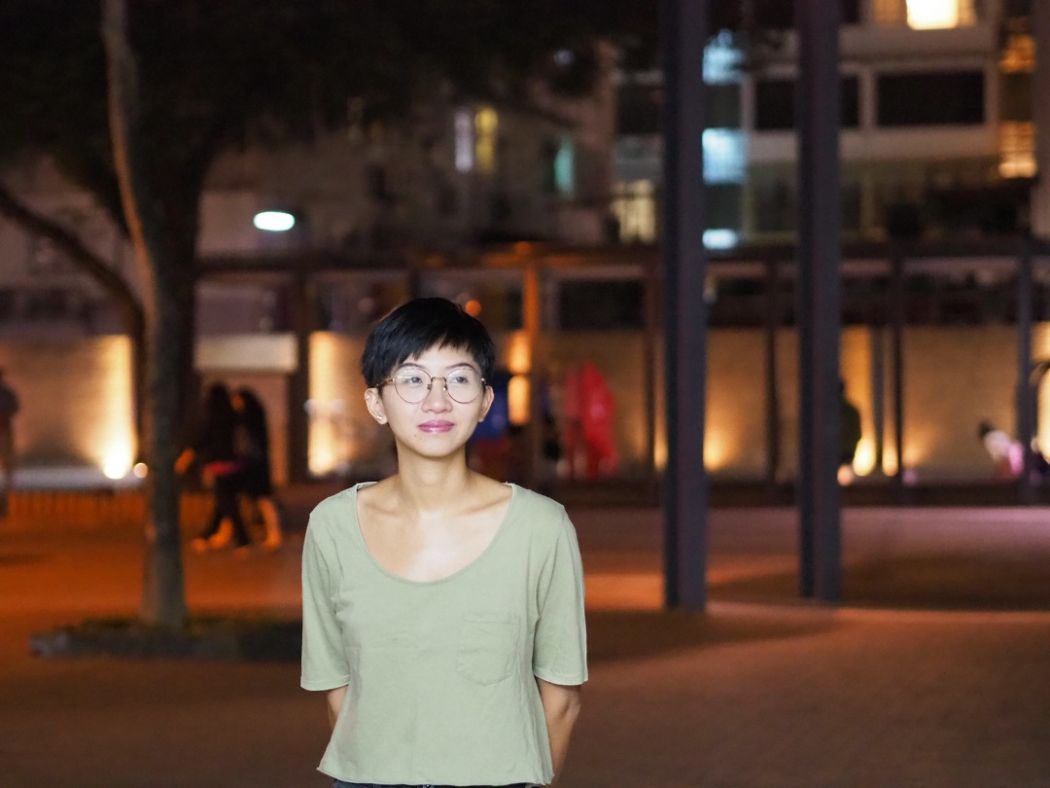District Council elections will take place across Hong Kong on November 24, amid a record increase in voter registration. In the first part of a series, HKFP speaks to new pro-democracy candidates who began their campaigns during the extradition bill protests – the gravest political crisis the city has faced in half a century.
Debby Chan – known as a rural planning activist since participating in the seminal Tsoi Yuen Village protests a decade ago – began her campaign in Sai Kung as the extradition bill crisis was brewing.
Though the masters’ graduate does not actually live in “Hong Kong’s back garden”, she decided to run for District Council in the Sai Kung Islands constituency – a large rural landmass stretching from the north of Sai Kung Town Centre to the sparsely-populated outlying islands.

Hong Kong is made up of 18 districts, each of which possesses its own District Council, mostly democratically-elected every four years.
The District Councils are mostly bodies “consulted” by the government in decision-making, and possess no policymaking or large-scale budget approval powers equivalent to their colonial predecessors, the Urban Councils. Councillors are often mocked for boasting of questionable achievements, such as an instance where one “successfully fought for” a two-second increase in the duration of green lights at a Mong Kok pedestrian crossing.
However, District Council members make up some 10 percent of eligible voters in the small-circle election for Hong Kong’s Chief Executive.
Perhaps more significantly, the small sums entrusted to District Councils for distribution can sustain a network of community groups. Pro-Beijing councillors have often been accused of funnelling money, in an opaque manner, to pro-Beijing groups, so as to outspend the pro-democracy camp and ensure the loyalty of indebted voters.

Debby Chan can mostly be seen campaigning around Sai Kung Town Centre, as well as key transportation hubs such as Choi Hung and Hang Hau.
“Even though I’m not a Sai Kung resident, I’ve been involved in its planning issues for a long time,” she told HKFP. “Back in 2013, I studied Sai Kung’s rural development… and found that the pressing issues faced by residents – transport and tourism-related problems – are very related to planning.”
With its picturesque countryside, Sai Kung is often packed with visitors on weekends and holidays, but is often only served by a fleet of minibuses racing through long and winding roads.
After meeting locals who invited her to community events, Chan and several other activists formed Sai Kung Commons, a pro-democracy group that will field candidates in a number of rural constituencies in the upcoming elections.
“I feel that the District Council is not doing enough [to resolve planning issues]… and feel that Sai Kung deserves better representatives. That is why I began to think of running.”

Sai Kung Commons set up their Facebook page in May. Within a month, urban Hong Kong would be engulfed in its largest-ever protest movement, as protesters stormed the Legislative Council and police deployed in unprecedented force.
As InMedia reported, the group were initially doubtful as to whether it was their role to promote the anti-extradition bill movement, but decided to do so ahead of the first mass protest on June 9.
“Every time someone says the anti-extradition bill movement has nothing to do with Sai Kung, someone else replies: ‘Has Sai Kung declared independence?’,” said Chan. “As Hongkongers, Sai Kung residents have sacrificed a lot. Many people own cars, and some even act as ‘school bus drivers’ [volunteers who drive protesters home].”
Soon enough, “Lennon Walls” began emerging in Sai Kung, and the Sai Kung Commons team began organising film screenings, including RTHK’s Hong Kong Connection programme detailing the July 21 Yuen Long mob attacks.

The district first saw tear gas after clashes broke out in the southern town of Tseung Kwan O in September.
Harassment and attacks
Then on September 29, Sai Kung became the centre of the city’s attention as Stanley Ho – a Sai Kung Commons candidate – was attacked by assailants wielding batons and metal pipes while campaigning.
Chan said that her team has often been harassed, with opponents hanging banners outside their homes. Local residents were initially fearful of expressing themselves, but an increasing number have turned out to community events.
“After the attack on Stanley Ho, Zoe [Leung] and I were frightened to campaign in Sai Kung. But locals actively sought to identify the perpetrators and formed security groups. Some even messaged me to say they would protect us anonymously… Eventually, I felt that nothing could scare away Sai Kung residents anymore.”

Sai Kung Islands is a multi-ethnic district, with some 11 per cent of residents identifying as non-Chinese. Chan has also reached out to the non-Chinese community, who she says are passionate about maintaining a decent countryside living environment.
“As candidates here have historically been elected unopposed, some residents are new to the responsibilities of a district councillor,” she told HKFP.
Pro-democracy candidates have sometimes eschewed Sai Kung because of its geographical distance and the inconvenience of campaigning there. But for the first time in Hong Kong history, every single constituency across 18 District Councils will be contested on November 24.
“Many residents seemed happy after receiving our English-language leaflets,” said Chan. “They feel that their concerns are finally taken seriously.”
Chan’s opponent is Philip Li, who has served the district since 2011 and faced no challenger in 2015. Li’s predecessor was Wan Yuet-kau, of the same DAB party – the largest pro-Beijing group in Hong Kong.

“I want to make a breakthrough by working in Sai Kung,” said Chan. “I want to listen to the residents and empower them – as opposed to only acting as a representative for some.”
“If we can’t create such an environment, rural planning will only be tilted towards vested interests.”
The other candidate for the Sai Kung Islands constituency is Philip Li from the Democratic Alliance for the Betterment and Progress of Hong Kong.
Hong Kong Free Press relies on direct reader support. Help safeguard independent journalism and press freedom as we invest more in freelancers, overtime, safety gear & insurance during this summer’s protests. 10 ways to support us.

